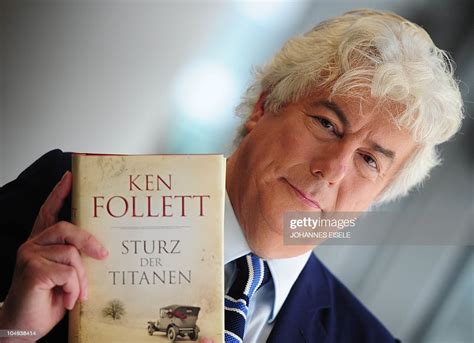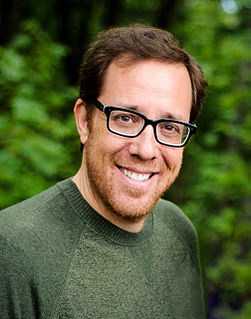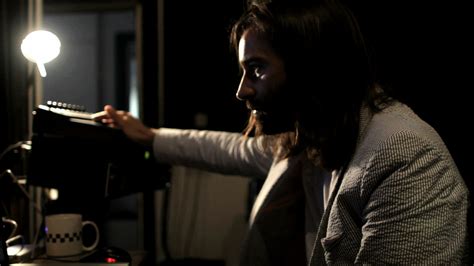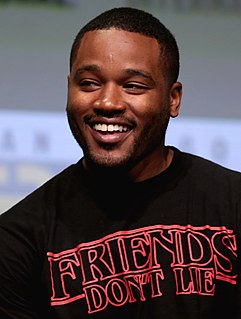A Quote by Ken Hill
The prime goal of an author is the same as a musician, which is to emotionally connect with the reader in some way or another.
Related Quotes
My readers have to work with me to create the experience. They have to bring their imaginations to the story. No one sees a book in the same way, no one sees the characters the same way. As a reader you imagine them in your own mind. So, together, as author and reader, we have both created the story.
An actor uses his body as a tool and an instrument. In the same way a musician plays an instrument, the actor uses his body to convey feeling and emotion. An animator uses a pencil or a computer to create the same thing, the same exact way... An actor is taking words that are not his own, and he has to bring some kind of authentic life to those words. It's the same goal, to create this authentic life. Even if it's a drawing, or if it's a cartoon, you're still trying to create authenticity because, if the character emotes authentically, it has a power to connect with the audience.
Books are frozen voices, in the same way that musical scores are frozen music. The score is a way of transmitting the music to someone who can play it, releasing it into the air where it can once more be heard. And the black alphabet marks on the page represent words that were once spoken, if only in the writer's head. They lie there inert until a reader comes along and transforms the letters into living sounds. The reader is the musician of the book: each reader may read the same text, just as each violinist plays the same piece, but each interpretation is different.
We must be forewarned that only rarely does a text easily lend itself to the reader's curiosity... the reading of a text is a transaction between the reader and the text, which mediates the encounter between the reader and writer. It is a composition between the reader and the writer in which the reader "rewrites" the text making a determined effort not to betray the author's spirit.
As a filmmaker, like any artist, when something affects me emotionally I think about it in those terms. It's my way of dealing with my thoughts, my fears and my hardships. I think the same can be said with any artist. For a musician, you're going to write a song about something that affects you emotionally.
As a filmmaker‚ like any artist‚ when something affects me emotionally I think about it in those terms. It's my way of dealing with my thoughts‚ my fears and my hardships. I think the same can be said with any artist. For a musician‚ you're going to write a song about something that affects you emotionally.
My dream is that people will find a way back home, into their bodies, to connect with the earth, to connect with each other, to connect with the poor, to connect with the broken, to connect with the needy, to connect with people calling out all around us, to connect with the beauty, poetry, the wildness.
A reader's tastes are peculiar. Choosing books to read is like making your way down a remote and winding path. Your stops on that path are always idiosyncratic. One book leads to another and another the way one thought leads to another and another. My type of reader is the sort who burrows through the stacks in the bookstore or the library (or the Web site — stacks are stacks), yielding to impulse and instinct.


































